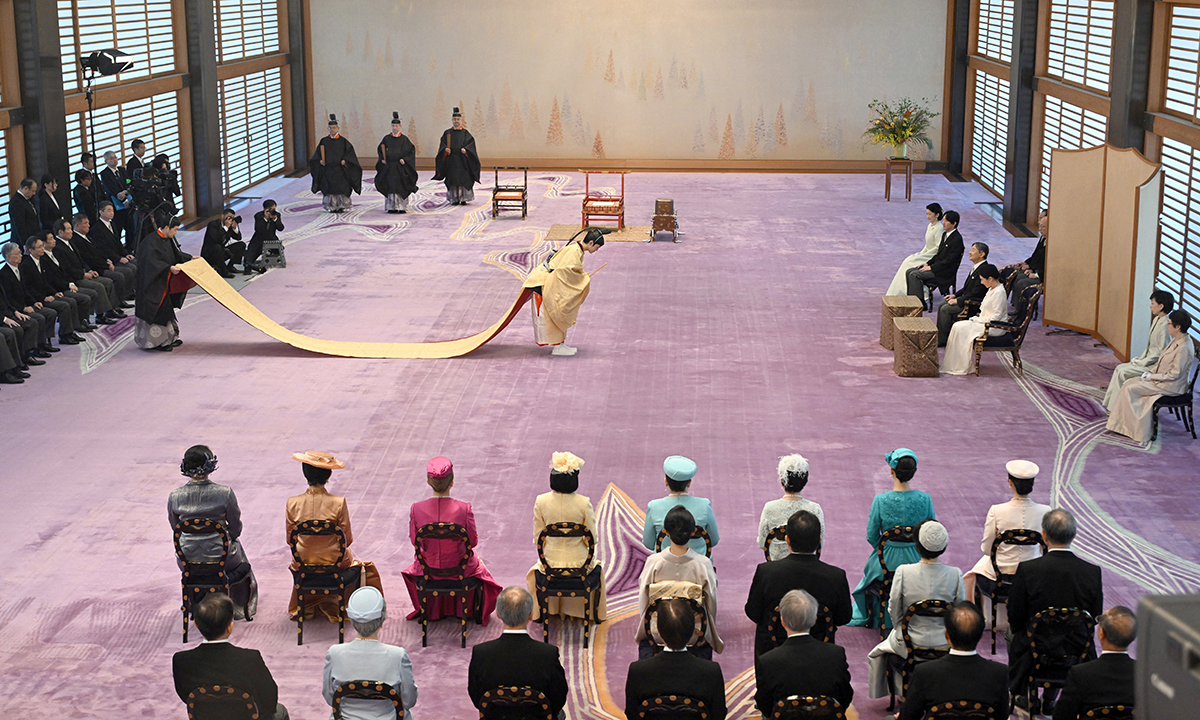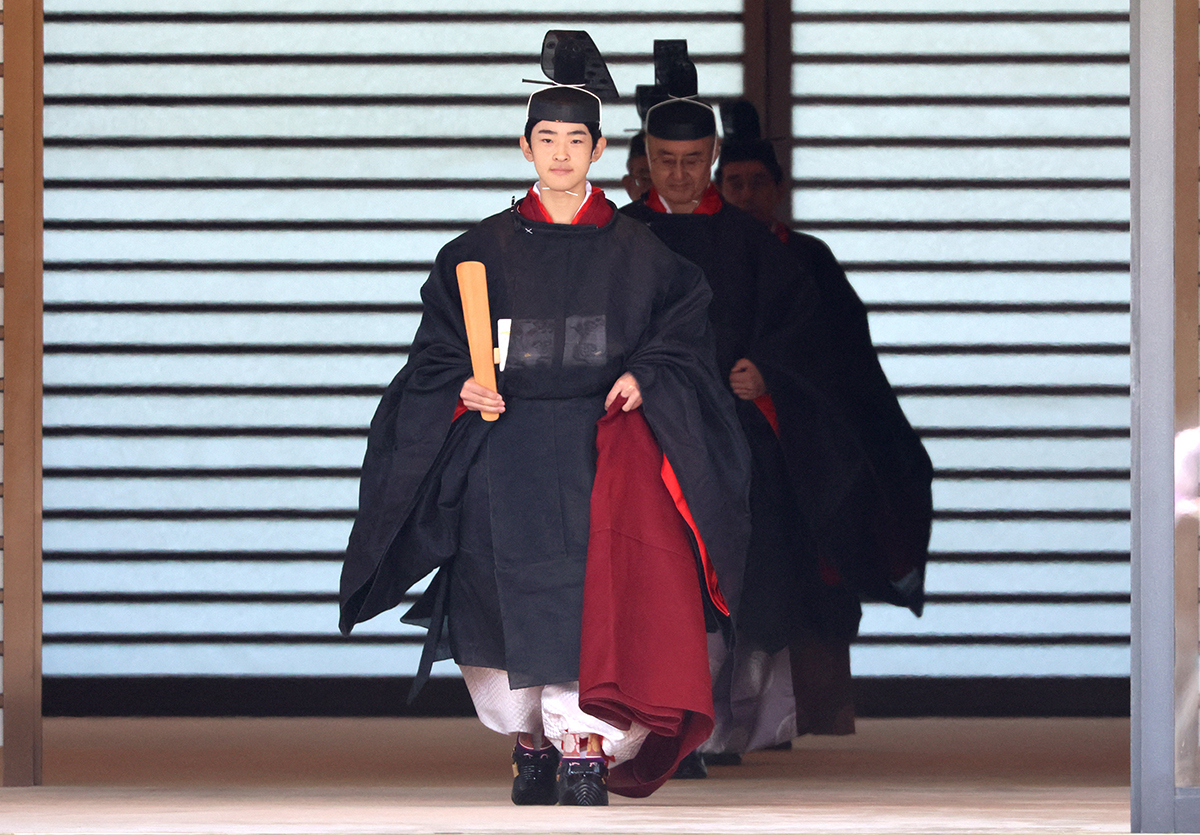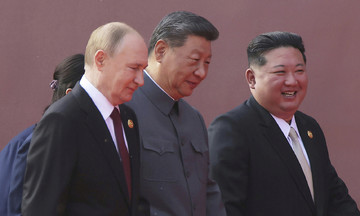Nineteen-year-old Prince Hisahito, wearing a traditional yellow robe for minors, received a black silk crown during the ceremony on 6/9.
The ceremony marked Hisahito's transition to adulthood within the Japanese imperial family. Dozens attended the event.
"Thank you, both of you, for bestowing this crown upon me at my coming-of-age ceremony today," Hisahito said, bowing to Emperor Naruhito and Empress Masako. "I will fulfill my duties and recognize my responsibilities as an adult member of the imperial family."
Hisahito later departed for other ceremonies, wearing the traditional dark attire for adults. He is second in line to the Chrysanthemum Throne, after his father, Crown Prince Fumihito.
 |
Prince Hisahito and members of the Japanese imperial family at the coming-of-age ceremony at the Imperial Palace in Tokyo on 6/9. Photo: AFP |
Prince Hisahito and members of the Japanese imperial family at the coming-of-age ceremony at the Imperial Palace in Tokyo on 6/9. Photo: AFP
Emperor Naruhito has a 23-year-old daughter, Princess Aiko. However, she is not in the line of succession due to a rule limiting inheritance to males. Despite this, many Japanese people have recently expressed support for a female monarch.
"To me, it makes no difference whether a woman or a man becomes emperor. There needs to be more flexibility in the rules of succession," said Yuta Hinago, a 33-year-old bartender in Tokyo. Minori Ichinose, 28, agreed, saying "gender doesn't matter" and expressing her support for the idea of a Japanese empress.
 |
Prince Hisahito leaving the Imperial Palace in Tokyo after the coming-of-age ceremony on 6/9. Photo: AFP |
Prince Hisahito leaving the Imperial Palace in Tokyo after the coming-of-age ceremony on 6/9. Photo: AFP
The issue of imperial succession has been debated in Japan for decades. In 2005, a Japanese government panel recommended allowing the eldest child to inherit the throne, regardless of gender. The debate subsided a year later with the birth of Prince Hisahito.
Traditionalists argue that male-only succession is fundamental to Japan and that significant changes would divide the country.
Under Japan's post-1945 constitution, the imperial family holds no political power.
Nguyen Tien (AFP, AP)












